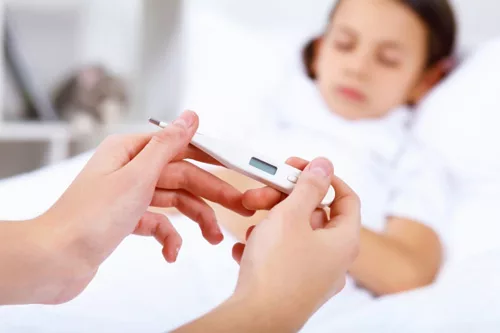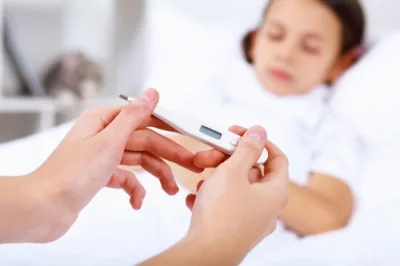A febrile seizure is a convulsion in young children that may be caused by a sudden spike in body temperature, often from an infection, but who do not have an intracranial infection, metabolic disturbance or history of a febrile seizure.
Febrile seizure are most common in children & it affects 2 to 5% of children between the ages of 6 to 60 months
Fortunately, febrile seizures aren’t as dangerous as they may look. A seizure triggered by a fever is usually harmless and typically doesn’t indicate a long-term or ongoing problem.
Symptoms
Febrile seizure symptoms can range from mild — rolling of the eyes — to more severe shaking or tightening of the muscles.
A child having a febrile seizure may: have fever usully higher than 102F (38o9 C). Lose consciousness and shakes, shake and jerk on both arms and legs of the body, the child’s eyes may roll back in the heat, or worse the body may go stiff, then generally twitch or shake (convulse) & may have trouble breathing. However, the severity of convulsion did not reflect the severity of the fever.
Most febrile seizures occur because of a sudden spike in body temperature, and most occur during the first day of a fever. But a febrile seizure may also develop as the fever is declining
The reason seizure could be infected by viruses, bacteria or post vaccination seizure.
The convulsion usually last seconds to 10 minutes, but others are longer than 15 minutes or more than two convulsions in a 24 hour period or seizures in only one side of the child’s body is affected.
Do not worry as after convulsion, child may feel better. The best for monitoring the convulsion is examined & evaluated by a doctor.
When to see doctor
Have a first-time febrile seizure evaluated by your doctor as soon as possible, even if it lasts only a few seconds. If the seizure ends quickly, call your doctor as soon as it’s over and ask when and where your child can be examined. If the seizure lasts longer than five minutes or is accompanied by vomiting, a stiff neck, problems with breathing or extreme sleepiness, call for an ambulance to take your child to the nearest emergency hospital.
Make an appointment with doctor & information needed
When child has had a febrile convulsion, consult your GP (family doctor) or pediatrician. However you may then be referred to a doctor Neurologist.
What you can do
- To note the temperature of child, time how long the convulsion lasted? How the convulsion was? Whole body or only portion of it? Did a child lose consciousness? Try to watch exactly what happens so that you can describe it later or video the convulsion if possible.
- List used medicine
However, parents are advised to make sure the child is safe* by placing them on the floor or bed, do not put anything into child’s mouth, loosen their clothes & do not hold child tightly.
* turn the child’s head to one side on the floor or bed to prevent your child inhaling vomit.
For further information, please contact us at: (84-24) 3577 1100 or send us an inquiry here


